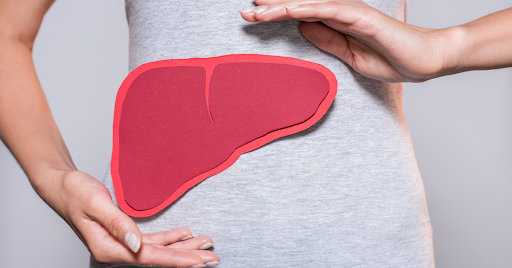8 Signs of Liver Disease

The liver is a vital organ that performs many essential functions, such as processing nutrients and aiding in digestion. Because of its important functions, it is essential to know the signs of liver disease. According to the Centers for Disease Control and Prevention (CDC), about 4.5 million adults in the US have been diagnosed with liver disease. Liver disease may be caused by viral infections like hepatitis B or C, cancer, genetic disorders, or excessive alcohol or drug consumption.
Liver Disease 101
Here at Birmingham Gastroenterology, we understand how important it is to maintain a healthy liver. If you are at risk for developing liver disease due to viral infections or lifestyle habits, you should be aware of the signs of liver disease to avoid complications.
Signs of Liver Disease
According to the Cleveland Clinic, more than 100 types of liver disease have been identified. As you may imagine, not all types of liver disease cause the same symptoms. However, when the liver is no longer functioning properly, these illnesses may cause the same symptoms and signs of liver disease.
If you are experiencing the following symptoms and signs of liver disease, you should seek medical attention as soon as possible. Catching liver disease early may increase the chances of effective treatment for a better outcome.
1. Jaundice: Yellow appearance of the skin and eyes due to the liver being unable to filter bilirubin
2. Fluid Retention: Swelling in the legs or distension in the abdomen due to an enlarged liver or fluid buildup
3. Abdominal Pain: Tenderness or pain in the abdomen where the liver is located
4. Chronic fatigue: A feeling of tiredness or weakness even when you get enough rest
5. Dark Urine: Also related to jaundice, urine may appear dark because the liver is not absorbing a pigment
6. Itchy Skin (pruritus): Itching may be in one location or all over due to the buildup of bile salts under the skin
7. Nausea, Vomiting, or Appetite Loss: Nausea and vomiting are often some of the first signs of liver disease or failure, so if you have other symptoms and then experience nausea, seek medical attention
8. Bleeding or Bruising Easily: If the liver stops producing proteins that help blood clot, then excessive bleeding or easy bruising may occur. People with cirrhosis may also vomit blood or notice blood in the stool.
Types of Liver Disease
There are multiple types of liver disease, and each of them may cause different symptoms. Types of liver disease include:
- Diseases caused by Hepatitis (A, B, or C) infection or other viral infections
- Diseases caused by drugs, poison, or excessive alcohol consumption
- Non-alcoholic Fatty Liver disease
- Cirrhosis
- Liver cancer
- Genetic and inherited diseases
- Wilson disease
- Hemochromatosis
Diagnosing Liver Disease
If you have symptoms or signs of liver disease, you should seek medical attention right away. A doctor can evaluate your symptoms and recommend testing when needed. These tests may include:
- A group of blood tests called liver function tests
- Imaging tests like Ultrasound/Elastography, CT scans, or MRI scans to check for liver damage.
- Liver biopsy, in which a long needle is used to remove a tissue sample from the liver to check for liver disease and signs of damage
If you have symptoms or signs of liver disease, you should seek medical attention from a GI specialist for evaluation and treatment. The team at Birmingham Gastroenterology has decades of experience treating diseases and disorders in all parts of the digestive system. This includes offering liver biopsy services to diagnose or evaluate the signs of liver disease. To make an appointment to discuss your symptoms and treatment options, call us at (205) 271-8000.

